Related Research Articles
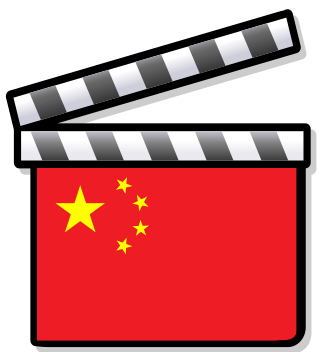
The cinema of China is the filmmaking and film industry of the Chinese mainland under the People's Republic of China, one of three distinct historical threads of Chinese-language cinema together with the cinema of Hong Kong and the cinema of Taiwan.
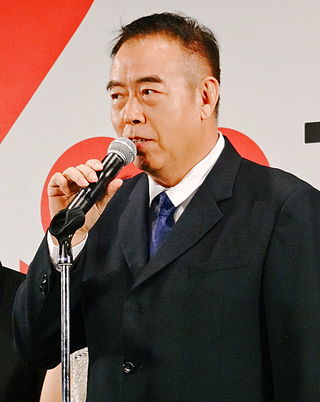
Chen Kaige is a Chinese film director and a leading figure of the fifth generation of Chinese cinema. His films are known for their visual flair and epic storytelling. Chen won the Palme d'Or at 1993 Cannes Film Festival and the International Federation of Film Critics (FIPRESCI) Award in 1993 for directing Farewell My Concubine.

Tian Zhuangzhuang is a Chinese film director, producer and actor.

Beijing Film Academy is a coeducational state-run higher education institution in Beijing, China.

Zhang Yuan is a Chinese film director who has been described by film scholars as a pioneering member of China's Sixth Generation of filmmakers. He and his films have won ten awards out of seventeen nominations received at international film festivals.

Wang Xiaoshuai is a Chinese film director, screenwriter and occasional actor. He is commonly grouped under the loose association of filmmakers known as the "Sixth Generation" of the Cinema of China. Like others in this generation, and in contrast with earlier Chinese filmmakers who produced mostly historical drama, Wang proposed a “new urban Chinese cinema [that] has been mainly concerned with bearing witness of a fast- paced transforming China and producing a localized critique of globalization.”

Wu Nien-jen is a Taiwanese screenwriter, director, and writer. He is one of the most prolific and highly regarded scriptwriters in Taiwan and a leading member of the New Taiwanese Cinema, although he has also acted in a number of films. He starred in Edward Yang's 2000 film Yi Yi. Wu is a well-known supporter of the Democratic Progressive Party and has filmed commercials for the party.

David Ayer is an American filmmaker known for making crime films that are set in Los Angeles and deal with gangs and police corruption. His screenplays include Training Day (2001), The Fast and the Furious (2001), and S.W.A.T. (2003). He has also directed Harsh Times (2005), Street Kings (2008), End of Watch (2012), and Sabotage (2014). In 2016, he directed the superhero film Suicide Squad from the DC Extended Universe, and then the urban fantasy film Bright (2017) for Netflix. He has twice collaborated with actor Shia LaBeouf: first with the World War II drama Fury (2014), then the crime thriller The Tax Collector (2020). He has also collaborated with his friend Cle Shaheed Sloan who has appeared in four of his films.
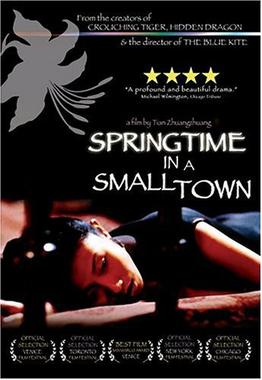
Springtime in a Small Town is a 2002 Chinese film directed by Tian Zhuangzhuang. The film is a remake of director Fei Mu's 1948 film and its original screenwriter is Li Tianji, Spring in a Small Town. Though the two movies are referred to by different English titles, they share the same title in Chinese.
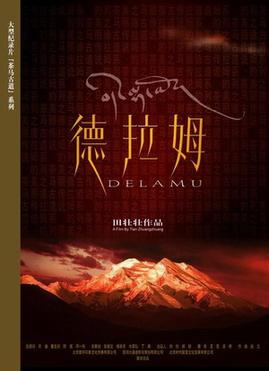
Delamu is a 2004 documentary film directed by Fifth Generation Chinese filmmaker, Tian Zhuangzhuang. Delamu documents the people living in the Nujiang River Valley, along the Tea Horse Road, an ancient trade route between China's Yunnan province and Tibet. The film was jointly produced by companies in the People's Republic of China, and Japan. It had its American premier at the 2004 Tribeca Film Festival.
Hou Yong is a Chinese filmmaker and cinematographer. He is perhaps best known for his collaboration with director Zhang Yimou, though he has worked with many of China's major directors. Like some of Zhang's other cinematographers, Hou has also moved into the directing world. In 2004, he directed Jasmine Women starring Zhang Ziyi.
Ning Ying is a female Chinese film director often considered a member of China's "Sixth Generation" filmmaker coterie, a group that also includes Jia Zhangke, Zhang Yuan and Wang Xiaoshuai. However, this is more a result of a shared subject matter than anything else, as chronologically, Ning is closer to the earlier Fifth Generation. Her sister, the screenwriter Ning Dai, is a frequent collaborator and the wife of fellow director Zhang Yuan. In 1997, she was a member of the jury at the 47th Berlin International Film Festival.

Mama is a 1990 Chinese film directed by Zhang Yuan. Zhang Yuan's directorial debut, Mama is now considered a seminal film in the history of Chinese independent cinema, and by extension, as a pioneering film of the Sixth Generation of which Zhang is a member. Shot on a very low budget within Zhang Yuan's apartment, Mama follows the story of a mother and her mentally challenged adult son.
He Jianjun is a Chinese film director and screenwriter. A graduate of the Beijing Film Academy, He is considered a leading voice in the so-called "Sixth Generation." He is occasionally credited under the name "He Yi."
Zhao Fei is a Chinese cinematographer and frequent collaborator to many directors of the China's so called "fifth generation" film movement. Zhao also served as Woody Allen's director of photography for three films between 1998 and 2001.
Zhang Junzhao was a Chinese film director and screenwriter who was mainly active in the 1980s. A graduate of the Beijing Film Academy and a contemporary of acclaimed directors Zhang Yimou, Chen Kaige, and Tian Zhuangzhuang, Zhang Junzhao was a prominent early member of China's Fifth Generation filmmakers. His 1984 film One and Eight is well known as the film that marked the advent of the Fifth Generation, while The Shining Arc (1988) was selected for competition for the Golden St. George award at the 1989 Moscow International Film Festival.
Shi Tiesheng was a Chinese novelist, known for his story which was the basis of the film Life on a String. The China Daily stated regarding his essay about the park near where he lived, "Many critics have considered I and the Temple of Earth as one of the best Chinese prose essays of the 20th century."
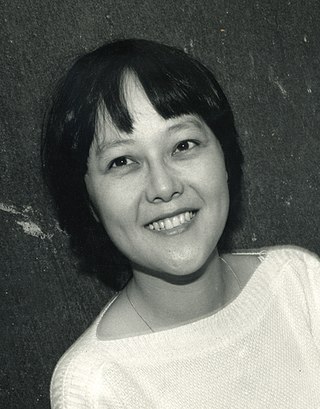
Peng Xiaolian was a Chinese film director, scriptwriter and author. A graduate of the 1982 class of the Beijing Film Academy, she was a member of the Fifth Generation, although her style differed from the other members of this group. She is known for her series of films about Shanghai, including Once Upon a Time in Shanghai (1998), which won the Best Picture Award of the Huabiao Awards; Shanghai Story (2004), which won four Golden Rooster Awards including Best Director and Best Picture; and Shanghai Rumba (2006), based on the romance of the movie star couple Zhao Dan and Huang Zongying.
Zhang Li is a Chinese director and cinematographer best known for his directorial works Towards the Republic (2001), Ming Dynasty in 1566 (2006), Memories In China (2007), The Road We Have Taken (2008), and Young Marshal (2014).
References
- 1 2 3 "Tian Zhuangzhuang: Stealing Horses and Flying Kites" in Speaking in Images: Interviews With Contemporary Chinese Filmmakers, p. 59. ISBN 0-231-13330-8. Google Book Search. Retrieved 2009-03-01.
- ↑ Berry, p. 60.